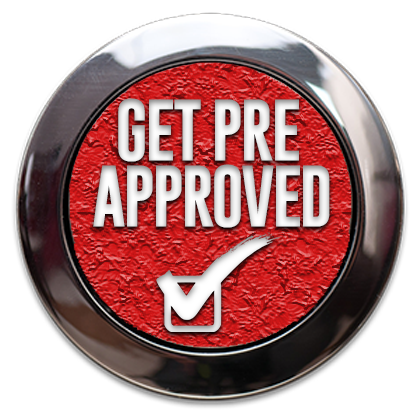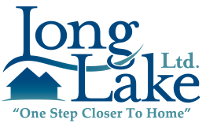
(713) 480-5560



HOURS:
MON - SAT: 10 AM - 6 PM
SUN: 12 PM - 6 PM
Please call Susan @713.480.5560
116 Firestone Ct
Waller, TX 77484
Phone: 713-480-5560
Contact Page
|
Glossary of Mortgage Terms
|

Beacon Hill Highlights:
- HOA Annual Dues: $665
- Total Tax Rate: 3.06%
- Waller School District
- Highly Ranked for Quality Builder by J.D. Power & Associates in 2010
- Minutes from shopping and restaurants
- Easy access to Hwy 290, Grand Parkway
MORTGAGE CENTER

How Much Income do I Need in Order to Qualify?
Do you need to know how much money you must earn to purchase the house of your dreams? This calculator will help you figure it out.
Savings: When you finance through our Preferred Lenders, Long Lakes Homes will pay your 1st year Home Owner Insurance, your owner’s title policy, and $500 in closing costs –
(these incentive valued from $3000 to $5000 determined by your loan amount)
Preferred Lenders:
1 . HOME NET FUNDING
Robert Tinh
C: : 713-992-7100
robert.tinh@nflp.com
2- Texas Capital Lending
Gerald Boudreaux.
NMLS # 1130687
Cell: 832-693-0991
gboudreaux@txcapital.net
3 .BenchMark
WILL NEVOTTI
214-733-9620 Cell
will.nevotti@benchmark.us

Finance Your New Home with Your Homebuilder’s Preferred Lender
Buying a newly-constructed home? Fun! Financing your newly-constructed home? Not so much.
Homebuilders feel you on this. When it comes time to find a mortgage, they have ways of making the process a little less of a hassle. They will have partnered with “preferred lenders” who work closely with them and know the builder’s paperwork, their schedules, deadlines, and their procedures. This may make the transaction come together more quickly, more smoothly, and with less effort on the part of the buyer.
What Are the Advantages of Preferred Lenders?
Under federal law, homebuilders can’t charge less for homes that are financed by preferred lenders. They also can’t require buyers to use their preferred lenders. But they can (and do) offer certain benefits for borrowing from them.
Buyers who use preferred lenders may get credits on their closing costs. The builder might promise an appliance upgrade, a more premium type of flooring or countertops, or other enhancements to the home.
Purchasers of newly-built homes may be able to meet with the preferred lender outside of “banker’s hours” in the development’s model home. This can make scheduling mortgage meetings much easier for busy people.
Most significantly, the close working relationship between builder and banker may help make the whole application, approval, and closing process easier and faster for everyone. As mentioned, preferred lenders know the builder’s timeline, terminology, and processes. They know the milestone dates and construction schedules. This enables them to coordinate the completion of the required home loan paperwork more quickly and accurately. There is simply less chance of miscommunication between the finance and construction companies.
Of course, the most important things for most people in choosing a mortgage are getting the best mortgage rates and getting the most favorable loan terms. Preferred finance companies usually offer very competitive interest rates and closing costs--though it’s still a good idea to shop around to make sure you’re getting the best deal.
How to Work with a Preferred Lender
The first step toward doing business with a preferred lender is to learn all you can about the relationship between it and the builder. The builder/seller is required by law to inform you about how it is affiliated with the lender. That’s valuable information. Ask questions about the relationship between the two entities if you’re not clear on it.
Once you’ve decided to go with the preferred lender, the transaction should move along like any other real estate transaction. The lender will request your financial information, so it’s a good idea to have that organized early in the process. It makes sense to review your credit history and to clear up any errors it may contain.
It’s also a good idea to be represented by an attorney in the transaction—and this is true regardless of who is financing your purchase. Ideally, you should retain a lawyer early in the process so that all legal issues can be resolved before closing.
Preferred Lenders and Your New Home
As anyone who’s ever purchased a newly-constructed home can tell you, the process is a little different than buying an existing home. Many people find it fulfilling—and even fun—to be involved in the design and outfitting of their new residence from the ground up. Using a preferred lender to finance the new home of your dreams often makes the buying process smoother, faster, and easier. Having fewer financing details to worry about gives you more time and energy to focus on the more engaging parts of the transaction—such as choosing your appliances, flooring, and custom features. That’s the best possible reason for using a preferred lender.
_______________________________________________________________
8 Questions to Ask When Buying New Home Construction

Not sure exactly what you need to be asking about? These 10 questions to ask when buying a new construction home will help get you started.
-
Is the lot cost included?
When you’re exploring new construction options, you’ll see that each plan comes with a base cost. This is the cost of the structure itself, as well as base interior and exterior features (we’ll get into those in a little bit). What may not be included is the cost of the land, so be sure to ask if the lot cost is figured into the base.
If the lot cost is included, ask if there are premium costs for certain lots. It’s possible that the base cost does include the lot, but the remaining lots in the development all have added costs for certain features that you can’t opt out of, such as look-out windows in the basement or wider yards. If the lot cost is not included, ask what it is (and whether there are additional premium costs) and factor those into the base price for the house.
-
How long will building take?
It’s important to know what you’re getting into timing-wise with a new construction build, particularly if you have a house to sell first or you’re going to be renting. While the building process is prone to delays and you won’t be able to get a finite schedule for how long the build will take, you’ll be able to get a general idea of what you can expect. Be sure to also ask if the build time includes the time it takes to get the permits, since those will typically take about 30-45 days to obtain.
-
What warranties are provided with the house?
Just because a home is brand new doesn’t mean that no problems will arise. Fortunately, most new construction homes come with one or more warranties that protect you in the event of a mishap early on, including a short term whole-house warranty and a longer structural warranty. Ask what the warranties include and how long they last. While you can always buy your own home warranty, you should expect that the builder will cover you in some way for at least the first several years.
-
What are the standard finishes?
Does a base cost look too good to be true? That might be because the builder is expecting you to spend big when it comes to finishes like flooring and countertops. Ask what types of finishes are included, and better yet, go through the model unit with the sales representative and have them point out what’s standard and what is an upgrade. You likely won’t meet with the design center until after you’ve gone under contract, so it’s important to figure out early what sorts of finishes and appliances you can expect to be included in the home’s base price.
-
Is landscaping included?
Depending on the size of your yard, landscaping, including sodding and putting in trees and plants, can set you back several thousand dollars or more. Is that a cost you’ll have to factor in on top of the home purchase? Some builders include your basic yard work, while others leave you with unfinished land that becomes your responsibility to landscape (and generally must be completed in a set amount of time, per the contract). Ask whether landscaping is included, and if so, what that entails and if there is any sort of warranty on the materials so that if your newly sodded grass dies right away or some other mishap occurs you’re not responsible for fixing it.
-
Does the contract include a cost escalation clause?
New builds are notorious for last minute surprises, but you don’t want to be on the hook financially if it happens. A cost escalation clause allows the builder to charge you for any unanticipated costs that arise as a result of necessary labor or materials. So if lumber prices go up before the builder has purchased the materials for your flooring, or an unexpected delay adds a few weeks onto the build, you’re on the line for those costs. If you’d rather not deal with the stress of unanticipated costs, find a builder that doesn’t include a cost escalation clause in the contract.
-
Are there any homeowners rules or regulations?
Even if there is no homeowners association for the development, the builder may still set some guidelines as far as what’s allowed and what’s not on your property. For example, you may not be able to use a particular type of fencing or install a shed in your backyard. It’s better to ask this question early and know what to expect than to move in and find out that you can’t bring into fruition certain plans you had for the space.
-
Are there any financial incentives for using the builder’s preferred lender?
Some builders offer discounts on closing costs if you obtain your mortgage through a company that they have a relationship with. Ask if these sorts of financial incentives are offered, but don’t make your final decision about where to get your mortgage based on the discounts alone – you may still be able to find a better deal through other lenders. It’s still good to know however if there are benefits to working with the builder’s preferred mortgage company.
If it’s your dream to build a new construction house, go in to the process with an open mind and a clear idea of what you can expect. The more questions you can ask in the beginning, the less surprises you’ll potentially face in the future.
And as with any home purchase, be sure to have an attorney read over your contract so that you can be sure everything is fair and equitable. Some buyers of new construction prefer to go in to sales meetings with a real estate agent as well, though in my own experience, I didn’t find that to be necessary. Be smart, ask the right questions, and at the end of the day (or fine, year) you’ll end up with a beautiful home built just for you.

 Equal Housing Opportunity |
Equal Housing Opportunity | 